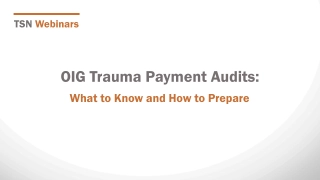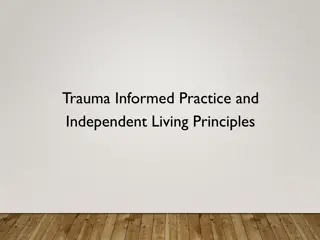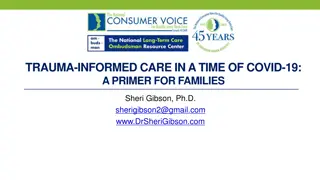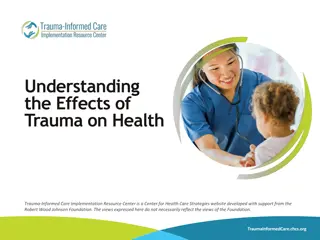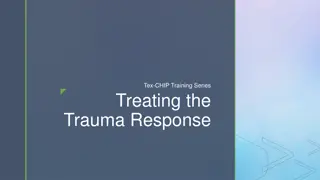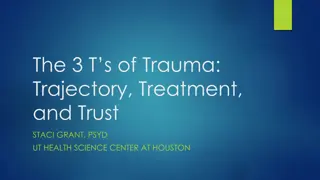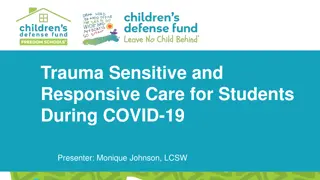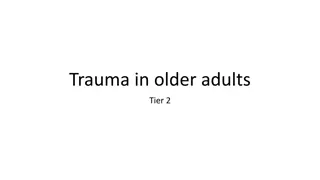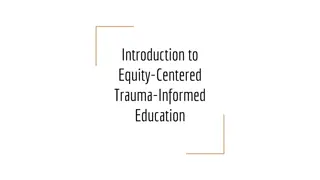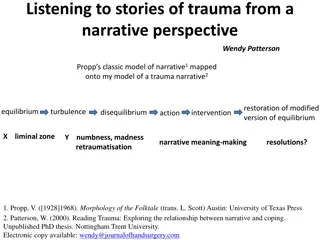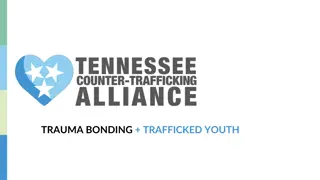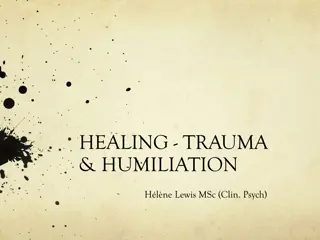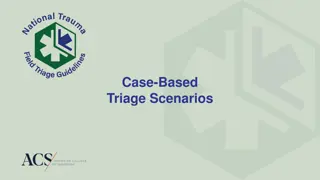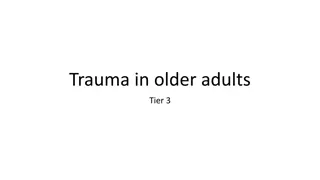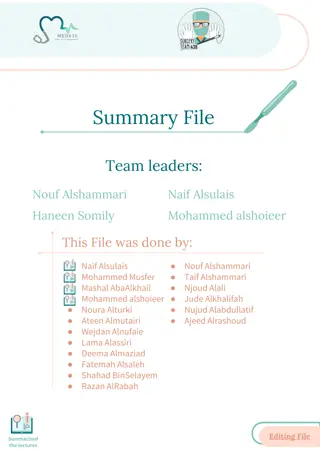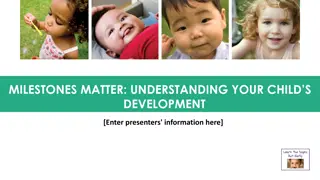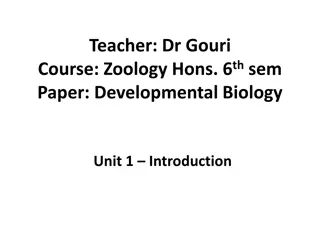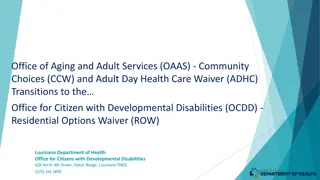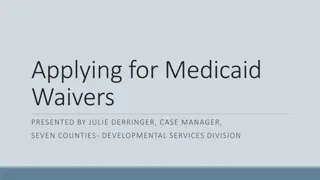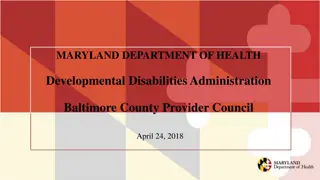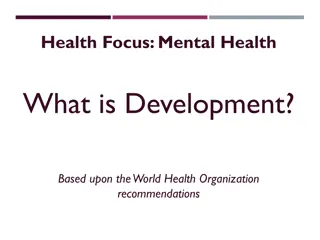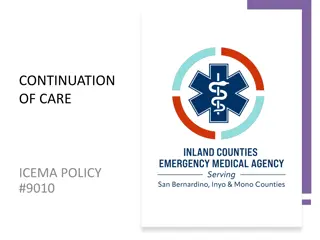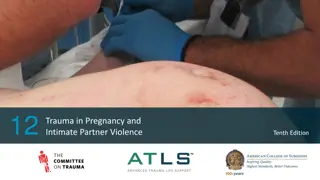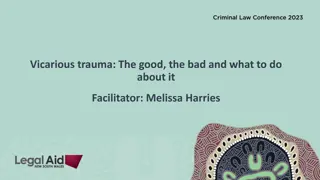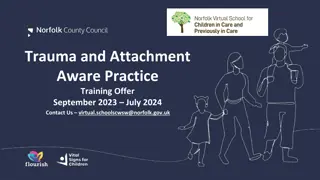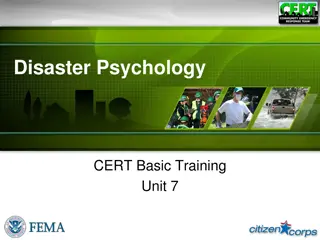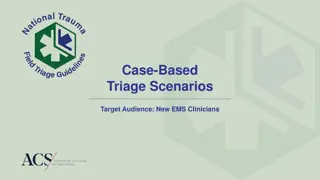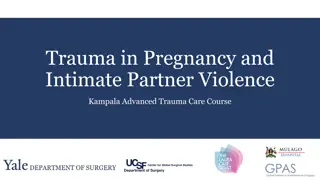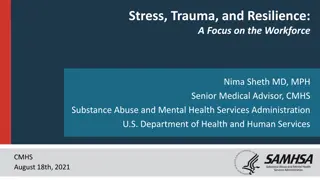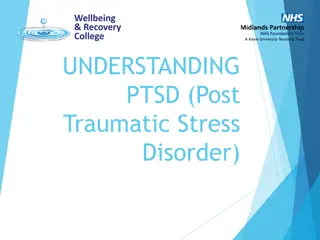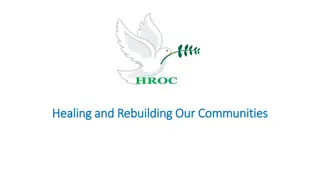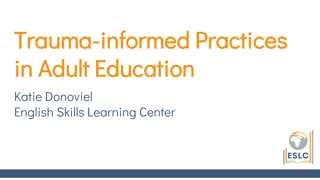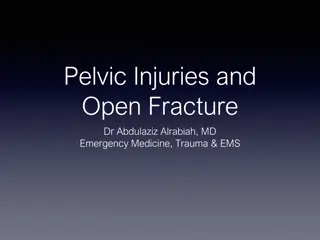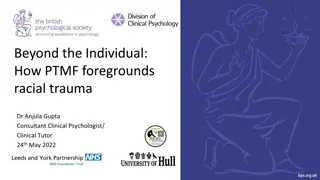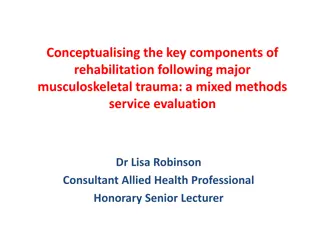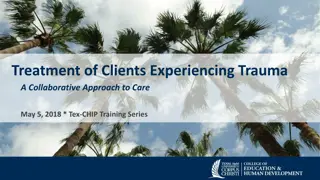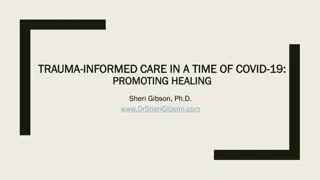Developmental Trauma
Exploring the effects of developmental trauma on children whose parents are involved in care proceedings, this content delves into the cognitive and emotional responses of children, the impact on interpersonal interactions within court settings, and the responses elicited from professionals working with parents. Additionally, it discusses key aspects of childhood development, brain facts, and different types of trauma, emphasizing the importance of understanding and addressing developmental trauma in children.
Download Presentation

Please find below an Image/Link to download the presentation.
The content on the website is provided AS IS for your information and personal use only. It may not be sold, licensed, or shared on other websites without obtaining consent from the author. Download presentation by click this link. If you encounter any issues during the download, it is possible that the publisher has removed the file from their server.
E N D
Presentation Transcript
Dr William Coman (Consultant Clinical Psychologist) Developmental Trauma
Developmental Trauma Parents whose children are subjects of care proceedings Impact on present cognitive processes and emotional responses Effects on interpersonal interactions in context of court proceedings Responses this evokes in those working with the parents
Survival Maturation Physical Neurological Development of skills for living Perceptual and Motor Competence Communication and language Competence Relational competence (attachment) Tasks of Childhood Tasks of Childhood Social competence (hierarchy, norms, morality etc) Problem solving and creativity (Cognitive competence) Concept of self Self-regulation of affect, cognition and behaviour 3
Brain facts Brain facts 100 billion neurons at birth - nearly all the neurons the brain will ever have are present Newborn brain weighs approximately 26% of fully developed brain (at age 21) By age 2, weighs nearly 80% of adult brain who already know 5
A provider Im the source of food, love shelter, play and soothing A protector everything is ok, I ll take care of you, set limits, and keep you safe Caregiver functions A guide this is who you are and how you work, and this is how the world, particularly the social world, works
Trauma Single Incident Trauma Road Traffic Accident Complex Trauma ..events of an extremely threatening or horrific nature, most commonly prolonged or repetitive events from which escape is difficult or impossible (e.g. torture, slavery, genocide campaigns, prolonged domestic violence, repeated childhood sexual or physical abuse) . ICD-11 Developmental Trauma Timing of the trauma how pervasive Context of caregiving relationship
Death Tasks of Tasks of Childhood Childhood Physiological Developmental Delay Neurological 10
Development of skills for living Perceptual and Motor Competence Communication and language Competence Relational competence (attachment) Social competence (hierarchy, norms, morality etc) Problem solving and creativity Tasks of Childhood Tasks of Childhood (Cognitive competence) Concept of self Self-regulation of affect, cognition and behaviour 13
Characteristics of the event(s) (nature, intensity and duration) Timing of the event (s) in development of child The characteristics of the child (IQ, Previous stress exposure, ) The degree to which support is available from family and wider community Subsequent personal growth therapy, positive relationships Child s recovery from trauma
Context of caregiving relationship means additional challenges Dilemma who to turn to when the caregiver meant to be the source of protection is the source of fear? Elaborate means to protect self in the relationship Basic Trust unconditional v conditional responses of parent Attachment learning miscue strategies to meet one s needs Intersubjectivity unable to relax into relationships and enjoy; fear of closeness and trust Shame Developmental Trauma
Shield of Shame Kim Golding Blame Minimise Lie Rage In Children
Developmental Trauma impacts all relationships Family Partner Friendships Parenting Authority
As adults Cognitive errors: misinterpreting a current situation as dangerous because it resembles, even remotely, a previous trauma Intrusive thoughts/feelings/memories Hyper-sensitivity to stress negative and positive Overwhelmed by stress and difficulty calming Hyper-sensitivity to Shame being triggered
How many? One of the biggest data gaps in the family justice system is the lack of national data on the characteristics and circumstances of parents of children involved in care proceedings .what proportion have experienced developmental trauma, services accessed etc.,? New admissions to Care in 2021: 893 DHSNI DHSNI
Living with trauma means living with uncertainty. You can help by providing a stable, consistent, and safe environment. Whether you are offering direct service, coalition building, or doing advocacy work make sure people can depend on you to follow through on your commitments and clearly communicate your process. Trauma survivors often have lived through an experience that was senseless or outside of their control. Establish Clear and respectful rules
Confusion Mirroring threat response Exhaustion Vicarious Trauma Secondary Trauma Personal impact
S What do I need for myself in order to work this case? Role Clarity Boundaries Support E What Emotions does it evoke? How can I manage those emotions L What personal stuff do I need to L et go of? F What am I going to do after to relax, reflect and reflex? Creating Psychological Safety for SELF
References Perry, B https://www.amazon.co.uk/Vicarious-Trauma-Legal-Profession- collective/dp/1913648109


